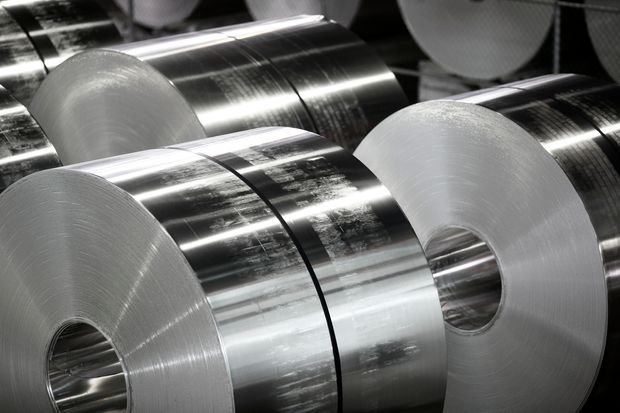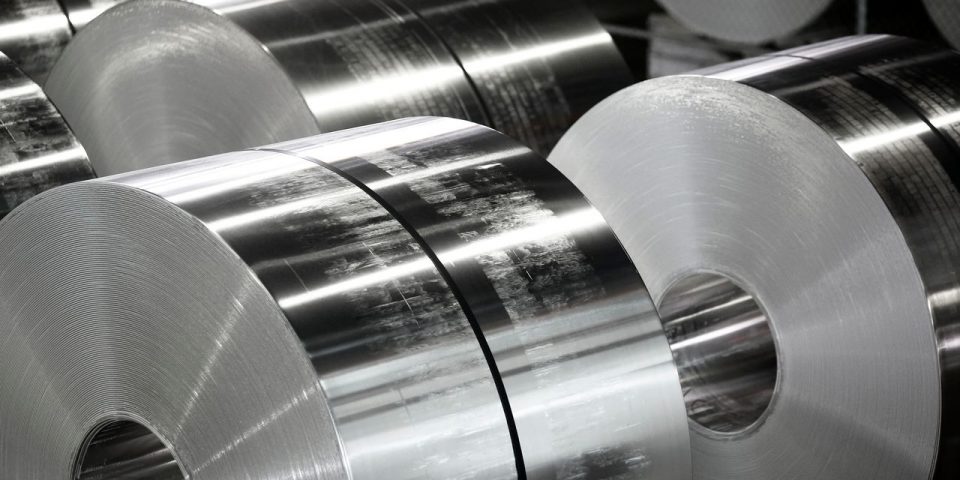Text size

Photograph by Luke Sharrett/Bloomberg
Advanced materials supplier
Arconic
reported fourth-quarter earnings just shy of Wall Street expectations Monday morning. The company’s earnings “print” is an early example of how
Boeing’s
737 MAX woes might affect the entire aerospace supply chain in 2020.
Arconic (ticker: ARNC) reported 53 cents in per-share earnings from $3.4 billion in sales. Analysts were looking for 54 cents in per-share earnings from $3.5 billion in sales. It isn’t a big miss. But 2020 earnings and sales guidance came up short, too. Still the stock edged up 0.6% Monday morning to $29.28, compared with the 1.5% drop in the
S&P 500.
Arconic expects to earn about $2.32 a share from about $14.1 billion in sales this year. Analysts were looking for $2.36 in per-share earnings from $14.2 billion in sales. The company will host an earnings conference call for analysts and investors at 10 a.m. ET Monday.
The company generates about 8% of its total sales directly from Boeing. It sells forgings, castings, and advanced fasteners to other aerospace suppliers as well.
General Electric
(GE) which makes the 737 MAX Leap engines with its joint venture partner
Safran
(SAF.France), is one customer.
Despite the MAX, Arconic’s aerospace business grew in 2019. Sales in the fourth quarter and full year were up about 4% and 10%, respectively. And the MAX didn’t come up specifically in Monday’s new release. But the troubled jet—grounded world-wide since mid-March following two deadly crashes within a five-month span—had come up on recent management conference calls.
“I’d love Boeing to be back in the air with the MAX. I think we all would. It’s important for the U.S. economy, GDP, to Boeing,” said Arconic CEO John Plant at a recent investment conference.
Boeing cut production of the MAX to 42 jets from 52 a month in April 2019. And the company temporarily halted production of the MAX earlier this month to focus on the 400-plus MAX jets already produced and parked. That means no MAX jets are rolling off the assembly line and that no parts are being bought for now.
Arconic’s slightly weaker-than-expected guidance is an early example of how the longer MAX delays can affect the entire aerospace supply chain in 2020.
MAX woes didn’t hit supplier stocks last year. Arconic stock, for instance, is up more than 57% over the past 12 month, better than comparable gains of the S&P 500 and
Dow Jones Industrial Average.
But looking ahead, supplier impacts are a new watch item for investors. MAX delays have lasted longer, and the situation has become more complicated than many aviation stakeholders initially expected.
For Arconic, the MAX impact is unique. The company is splitting into two businesses on April 1: Howmet, which will produce aerospace forgings and castings; and Arconic, which will focus on rolled products of transportation and construction markets. Investors expect the forgings and castings unit to trade at a premium valuation multiple because of the stability of the aerospace division.
The MAX situation, however, doesn’t belie that idea. Even with the plane grounded and production halted, 2020 guidance was just shy of the Street. But the continued uncertainty swirling around the MAX had Arconic shares down in Monday premarket trading—until the shares bounced back after the market open. Investors appear to believe aerospace—on the whole—is a good end market, despite MAX woes.
Howmet and Arconic will both host analyst events on February 25 to review the stand-alone businesses.
Write to Al Root at [email protected]


